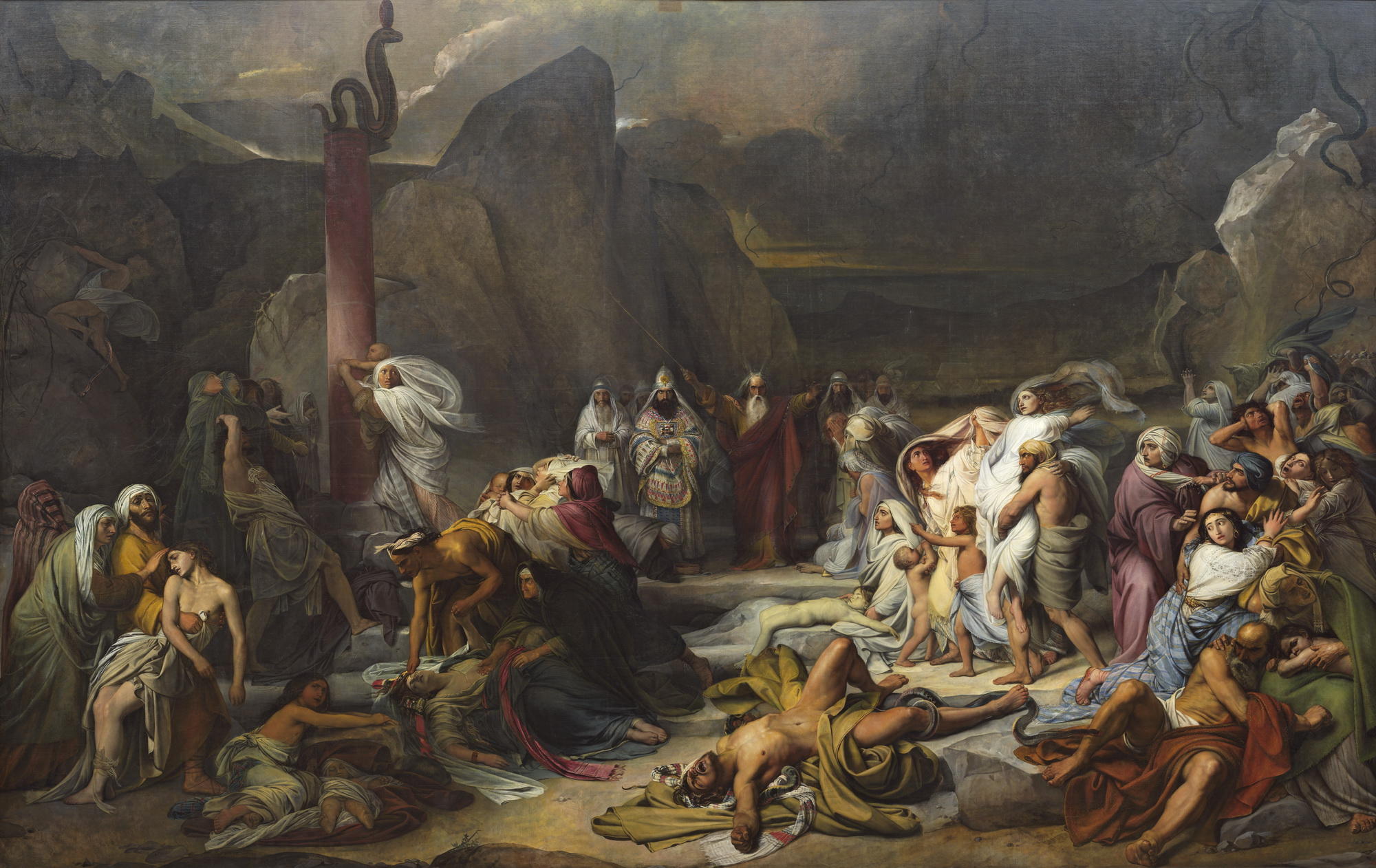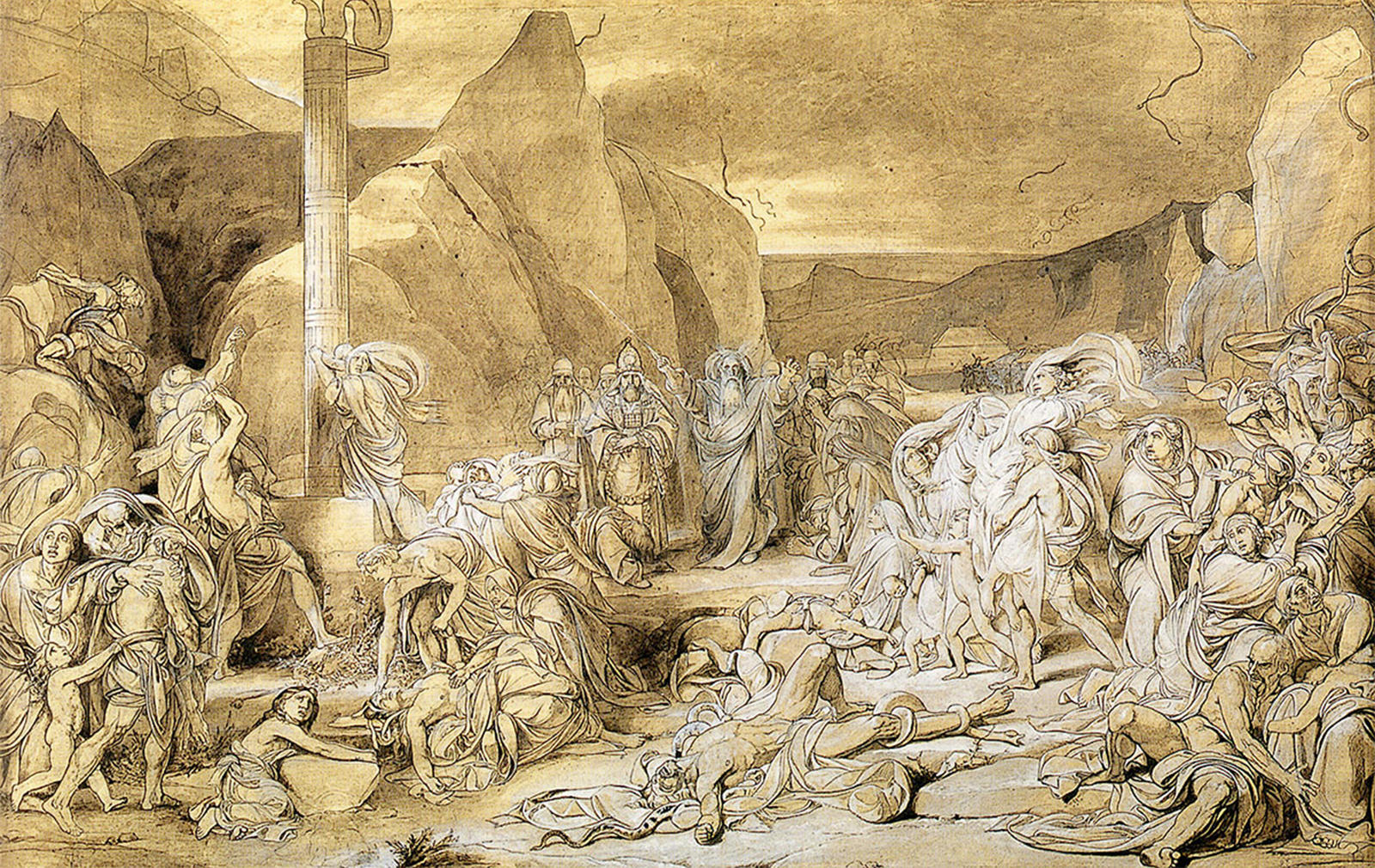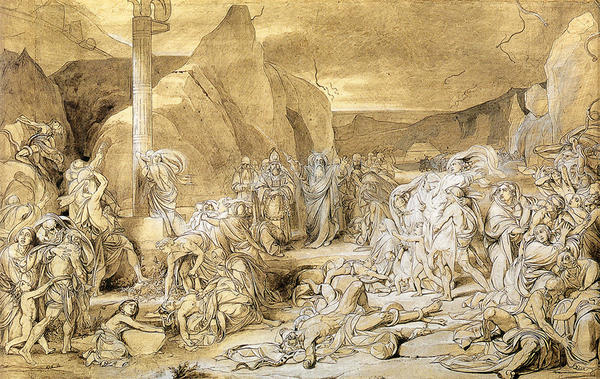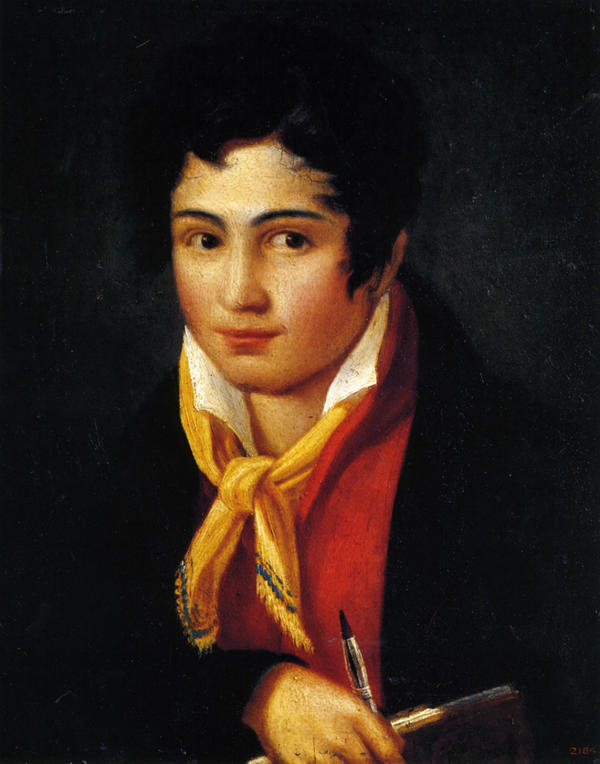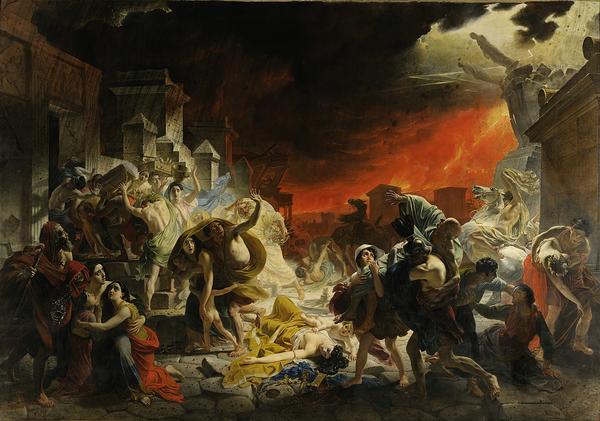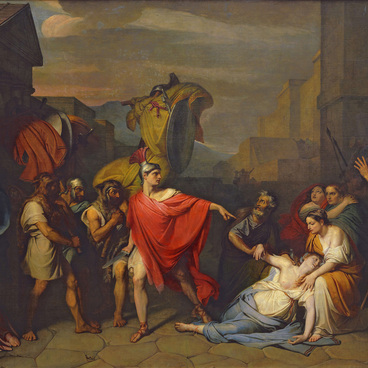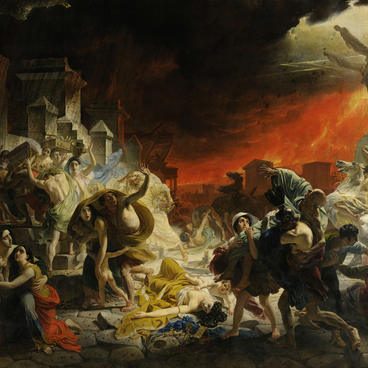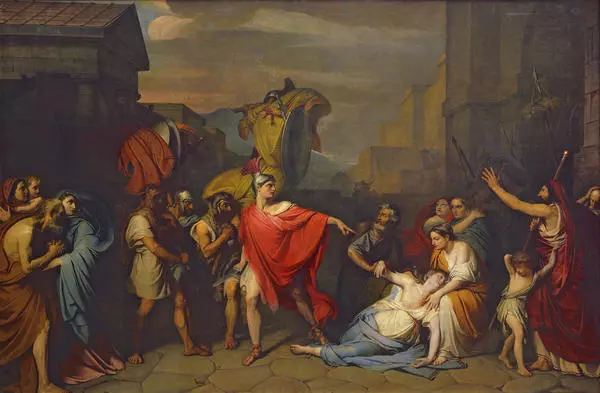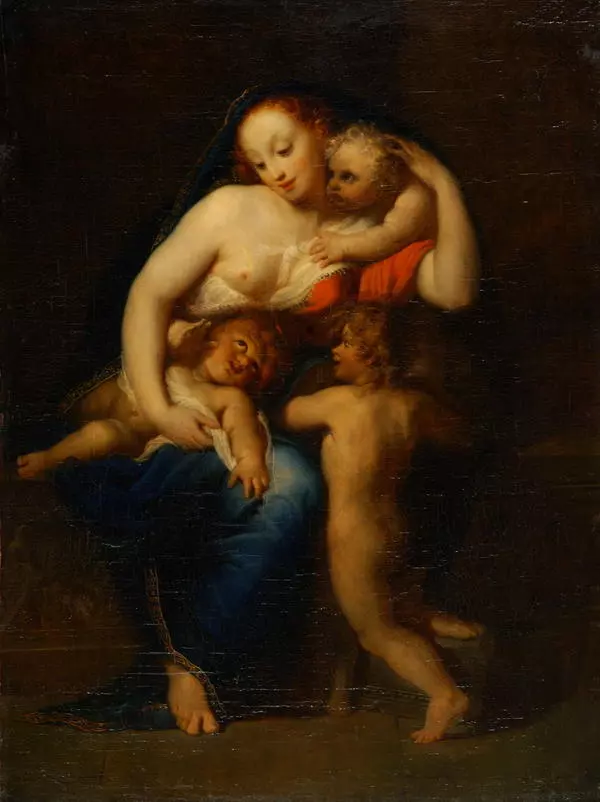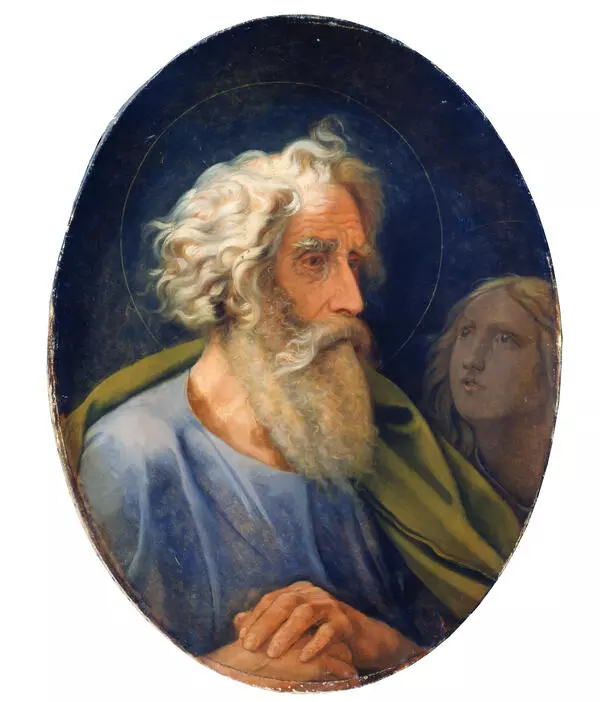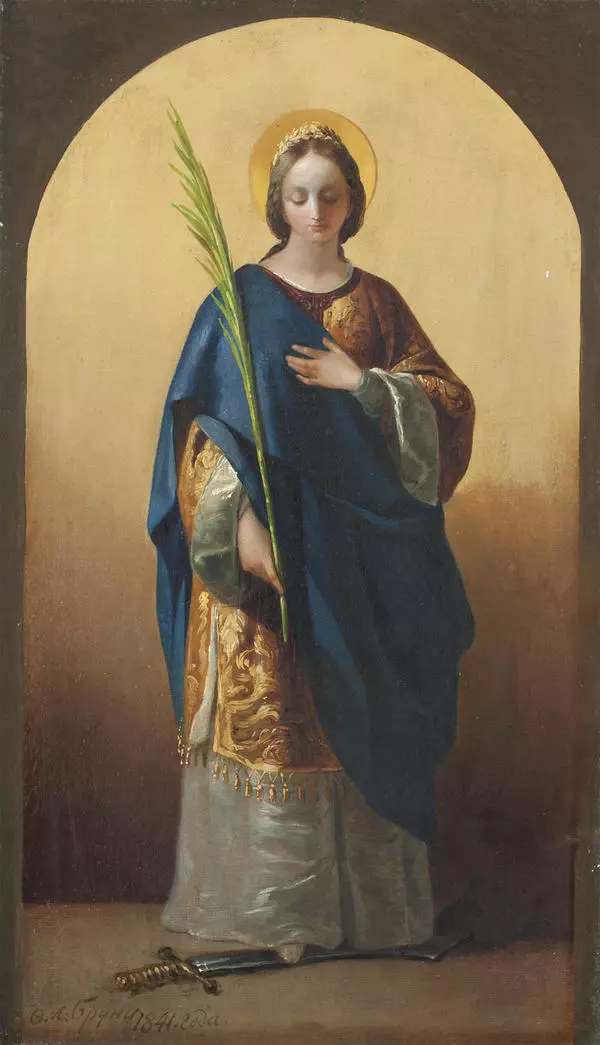Fyodor Bruni’s The Brazen Serpent is an outstanding piece of academic art of the classicistic era. The author worked on it many years: He made his first sketch in 1824, and he completed the painting only in 1841. The monumental canvas was 8.5 meters wide and 5.6 meters high.
1 / 2
The Brazen Serpent
Время создания
1841
Размер
565x852 cm
Техника
Oil on canvas
Коллекция
63
Открыть в приложении#1
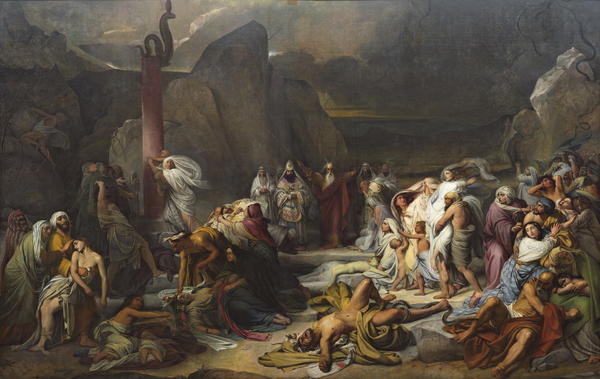
Fyodor (Fidelio) Bruni
The Brazen Serpent
#2
#3
Fyodor (Fidelio) Bruni. Final sketch for The Brazen Serpent. 1839. State Tretyakov Gallery
#4
The artist borrowed his subject from the Old Testament. When they were wandering in the desert, following their Exodus from Egypt, the Israelites began to lose faith and to complain. The Lord, enraged, sent fiery serpents to punish them. Then the people started to repent, and God told Moses to make a brazen serpent. Everyone who would look at the monument with true faith would be alive and well.
#5
Bruni painted the figures in the foreground in actual size. He did not emphasize any main character on canvas, but, instead, presented a multi-figure composition. The author outlined each image individually and imparted them with specific personality and their own story in the common narrative. A few characters are rushing hopefully towards the pole with the brazen serpent. Others are trying to run away in horror, seeking shelter close to their near and dear ones. Many are lamenting their dead relatives.
#6
In the center of the painting, in the background, the master depicted a groups of people who are very different from the crowd that runs about in desperation. These are the prophet Moses, his nephew Eleazar, the High Priest, and Levites, or priests. Their figures exude confidence, calmness, and a powerful force that can both punish and bring salvation.
#7
Bruni was born in Milan in 1799, his original name was Fidelio. He first came to Russia at a very young age, when his father, artist and restorer Antonio Bruni, was employed in the service of Emperor Paul I. The painted went back to Italy in order to produce the gigantic tableau The Brazen Serpent.
Fyodor Bruni. Self-Portrait. Oil on canvas. 1813–1816. State Russian Museum
#8
In 1836, Bruni had to suspend work on the picture for the sake of a position at the St. Petersburg Academy of Arts. But two years later, the artist came back to Italy and continued his performance. In Rome, his family had to live on a stringent budget, because Emperor Nicholas I did not agree right away to pay a salary to the painter. Bruni wrote: “Everybody is appalled by its colossal size, especially Germans, and I find it comical. I only need money, and all will go well.”
#9
In 1841, the master finished the painting. The Brazen Serpent was a huge success at exhibitions in Rome and in St. Petersburg. Nicholas I also like the tableau, and he bought it for the Hermitage.
#10
From the very beginning, contemporaries compared The Brazen Serpent to another monumental work — Karl Bryullov’s The Last Day of Pompeii. Art critic Alexander Benois even believed Bruni had begun his picture, ‘because Bryullov’s grandiose success touched a certain nerve in him.’
#11
Karl Bryullov (1799-1852). The Last Day of Pompeii. Oil on canvas. 1827–1833. State Russian Museum
#12
The pictures of Bruni and Bryullov were quoted together, and they were displayed side by side in museums: first at the Hermitage, then at the Russian Museum. Benois wrote:
“Both titans of Russian painting found a place for themselves on one wall […], as though these two giants were companion pieces”.
#13
The Brazen Serpent is the biggest historical tableau in Russia. The total area of the canvas is about 48 square meters, and the canvas weighs nearly 70 kilograms. This is the largest painting at the State Russian Museum.
#14
State Russian Museum
читать дальшескрыть
00:00
00:00
1x
The Brazen Serpent
Время создания
1841
Размер
565x852 cm
Техника
Oil on canvas
Коллекция
63
Открыть в приложении
Поделиться
